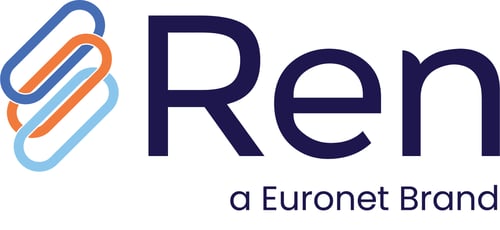The Evolution of Card Issuing Platforms
How Modern Platforms are Helping Financial Institutions Meet the Payment Needs of their Customers Now
The history of card issuing dates back to the 1920s with the introduction of “courtesy cards” by department stores and oil companies. However, the concept of “buy now, pay later” became more prominent with the launch of the first Diners Club credit card in 1950. The launch of this card was a significant innovation that paved the way for financial institutions to jump into the card issuing business to provide payment flexibility to their customers.
As demand picked up for these ‘payment cards,’ technological innovations like the ATM, magnetic stripes, EMV, and contactless made paying via a card easier, secure, and more accessible to consumers and businesses alike. In today’s digital and connected economy, consumers and businesses have different options for how they pay (Debit, Credit, Prepaid, Corporate card, etc.), and the payment itself may not be done by a ‘card’ at all. Rather all payment details are housed digitally in someone’s phone or smartwatch, and they simply tap a terminal or use a code to make the payment.
Financial institutions now find themselves having to tie together complex integrations with the various card networks, launch and maintain new card programs on disparate platforms, and ensure compliance with an ever-evolving regulatory environment – driving up operational costs and pushing their legacy systems to the limit.
In recent years, advancements in payment infrastructure have enabled financial institutions to reimagine their approach to card issuing. This is turning what was once a complex and costly process into a more efficient and potentially profitable experience for both the institution and its cardholders.
Understanding Card Issuing Platforms
Card issuing platforms are systems that enable the creation, management, and distribution of payment cards (physical and virtual). These platforms are designed to integrate with existing financial systems and offer a range of functionalities to support various payment needs.
Physical Cards: Physical cards are produced and personalized with cardholder information, security features, and branding elements. They are then shipped to the cardholder for use in both online and offline transactions.
Network Connectivity: Card issuing platforms connect with major payment networks like Visa, Mastercard, and local payment schemes to facilitate transactions. This connectivity ensures that the issued cards are accepted globally.
Real-Time Monitoring: Card issuing platforms provide real-time monitoring of card activities, allowing issuers to track transactions, check balances, and manage card status.
Regulatory Compliance: Card issuing platforms ensure compliance with financial regulations, such as PCI DSS (Payment Card Industry Data Security Standard), to protect sensitive cardholder data.
How can a Modern Platform Help Financial Institutions Improve their Card Issuance Process?
The card issuing landscape will continue to evolve and keeping ahead of the pace is important. The shift from legacy systems to a modern platform can help issuers in multiple ways:
Comprehensive card management from a single platform – Modern architecture provides the flexibility of managing all of your card issuing programs (Credit, Debit, Prepaid, Corporate) on a single platform. This provides an accelerated time-to-market for launching new programs and you can also view your complete card operations instantly with real-time dashboards.
Instant Issuance: One of the most significant advancements in modern card issuing platforms is the ability to instantly issue virtual or physical cards. This feature enables customers to access their funds immediately, eliminating the need to wait for traditional card delivery times. Whether opening a new account or replacing a lost or stolen card, users can enjoy instant access to their funds, enhancing the overall customer experience.
Customization and Personalization: Modern platforms empower issuers to customize and personalize cards to meet the unique needs and preferences of their customers. From personalized designs and branding to tailored rewards and incentives, these platforms enable issuers to create a truly personalized experience for their cardholders, driving customer loyalty and engagement.
Real-Time Card Processing: With a modern platform, you can experience instant card authentication, authorization controls, and alerts with flexibility and compliance. Ensures that every transaction is routed efficiently, reconciled and settled across all prominent card networks.
API-Driven Architecture: Modern platforms embrace an API-driven architecture, allowing seamless integration with third-party applications and services. This enables issuers to offer innovative features such as in-app card management, budgeting tools, and spending insights, empowering users to take control of their finances like never before.
Scalability and Flexibility: With the rise of digital banking and fintech startups, scalability and flexibility are more important than ever. Modern card issuing platforms are designed to scale effortlessly to accommodate growing transaction volumes and expanding user bases. Additionally, these platforms offer flexible pricing models and customizable features, making them ideal for institutions of all sizes.
Are you looking to take advantage of a modern card issuing platform to take your business to the next level? Learn more about Euronet’s Ren issuing solution here, or contact us now to schedule a meeting to discuss.
Upgrade to Next-Gen Payments Technology
The rapid evolution of payment technology demands forward-thinking strategies. Our guide offers detailed insights to help you modernize your systems and keep pace with industry advancements. Prepare for the future—download your guide today!
Learn more about the REN Payments platform here.
Read More About:
Card Issuing
Switching
ATM Management
Payment Platform
Dynamic Currency Conversion
Payment Hub
Real-Time Payments
Comments



